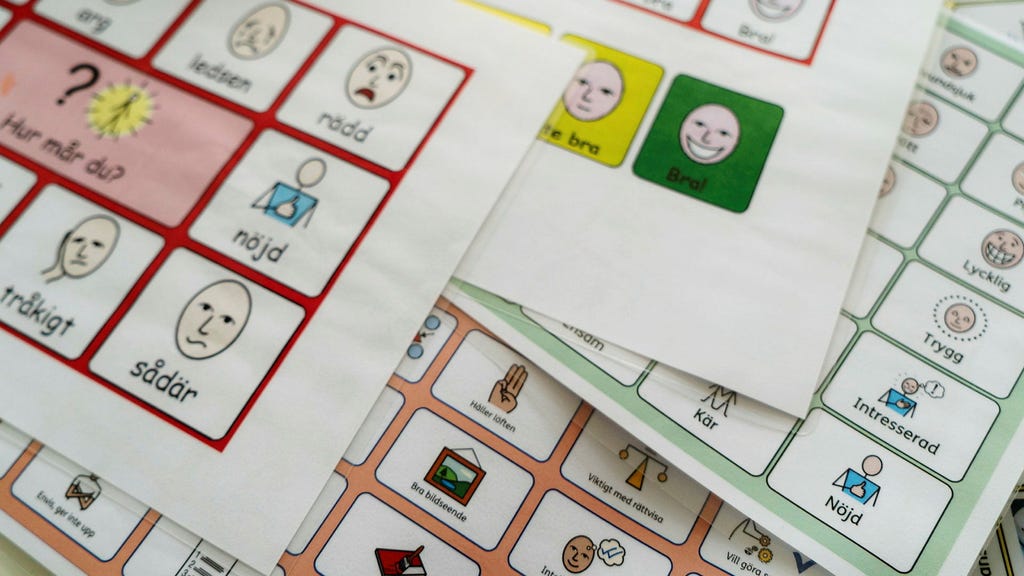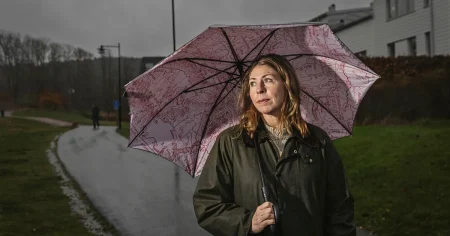The Crisis in Child and Adolescent Mental Health Services in Västerbotten, Sweden
The child and adolescent mental health services (BUP) in Västerbotten, Sweden, are facing a severe crisis, characterized by excessively long waiting times and inadequate resources. Over 1,000 children were on the waiting list for BUP in November 2024, with only 10% receiving an initial appointment within the 30-day target, the worst performance in the country. This dire situation is highlighted in a report analyzing complaints submitted to the patient ombudsman between January 2023 and June 2024. The report, compiled from 57 cases, paints a distressing picture of children struggling with long wait times, impacting their education and overall well-being. Parents described children experiencing increased school absences, difficulty managing conflicts, and a lack of adequate medical follow-up and insufficient treatment interventions from BUP.
Kerstin Eliasson, head of operations at Västerbotten’s BUP, acknowledges the issues raised in the report but insists they are not new. She points to measures implemented in 2024, such as extended phone hours and the temporary hiring of psychologists and psychology assistants to conduct parts of the assessments, funded by state grants. However, these measures are acknowledged as short-term solutions, addressing only a small portion of the overwhelming need. Eliasson attributes the long waiting lists to the rapid referral of children from primary care due to a lack of resources and expertise at that level. She argues that not all children experiencing mental health challenges require specialized psychiatric care and that primary care should be equipped to handle less complex cases.
The region faces financial pressure, with plans to cut approximately 300 positions and save around 250 million kronor in personnel costs in 2025. Eliasson asserts that BUP’s operations will not be affected by these cuts. She suggests that a more effective approach would be to ensure that BUP focuses solely on children requiring highly specialized care. The issue of long waiting lists is not new, with reports from 2023 already indicating over 1,100 children waiting for BUP services in Västerbotten. This persistent problem underscores the systemic nature of the challenges facing the region’s mental health services.
Anna-Lena Danielsson, chair of the health and medical care board in Region Västerbotten, agrees with Eliasson, emphasizing the critical role of primary care in shortening BUP waiting lists. She acknowledges the need for trained personnel within primary care to handle these cases, admitting that while training has occurred, it may not have been sufficient. Danielsson points to the difficulty of recruiting qualified personnel and the tendency of some health centers to directly refer children to BUP due to staffing shortages, bypassing the primary care level entirely. While recognizing the need for a tailored approach for each health center, Danielsson does not offer concrete solutions to address the staffing crisis. She emphasizes the importance of better collaboration between schools, social services, and other societal actors to identify and support children early on.
Opposition councilor Nicklas Sandström (M) suggests utilizing state funds earmarked for BUP to alleviate the burden on both primary care and BUP. He proposes outsourcing ADHD assessments to private providers, arguing that these assessments constitute a significant portion of the waiting list. This proposal aims to address a specific bottleneck in the system and reduce the overall wait times for children requiring this particular assessment. Sandström echoes the concern for the frustration experienced by young individuals and their families due to long waiting times, highlighting the urgent need for improved access to mental healthcare.
The ongoing crisis in Västerbotten’s BUP underscores the larger issue of insufficient resources and coordination within the Swedish healthcare system, particularly in addressing the mental health needs of children and adolescents. The combination of long waiting lists, inadequate staffing levels in both primary care and BUP, and the reliance on short-term solutions paints a concerning picture. While the importance of strengthening primary care is recognized, concrete plans and adequate funding to achieve this remain elusive. The ongoing debate highlights the urgent need for a comprehensive, long-term strategy that addresses the systemic issues contributing to this crisis and ensures timely access to appropriate mental health services for all children in Västerbotten. The proposed solutions, while potentially helpful, lack the comprehensive approach needed to address the root causes of the crisis and guarantee the long-term well-being of the children affected.














